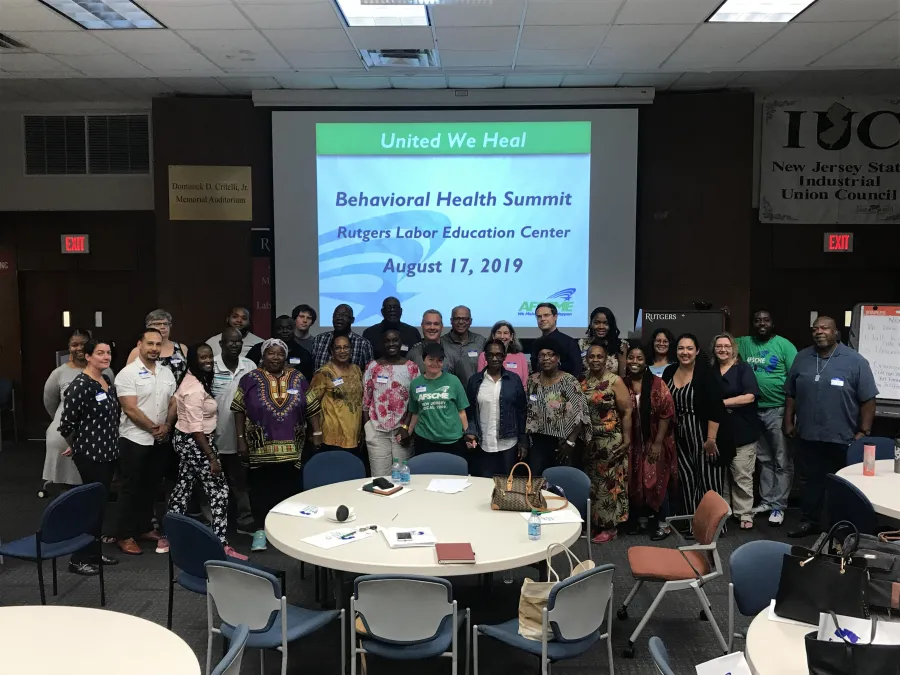New Jersey Behavioral Health Workers Focus on Using the Legislative Process to Improve the Industry

Summers in New Jersey are the perfect time to visit the state’s famous beaches, reconnect with friends and family and, most importantly, enjoy the warm weather. For two dozen United We Heal activists a recent Saturday in August was also the perfect time to dig into how the legislative process can have a positive, or negative, impact on their efforts to improve their industry.
The providers, both union and non-union, were joined at Rutgers University’s Labor Education Center by staff from AFSCME New Jersey Council 63, District 1199J, NUHHCE and AFSCME’s United We Heal campaign. There they dug into how the process really works, and steps they can take to have a greater voice on behalf of themselves and the consumers they serve.
For many of the participants, becoming more involved in the legislative process is a natural extension on why they got into the work to begin with.
“A big part of why I got into this work is because I really wanted to help people improve themselves,” said Aaliyah Nurideen, an AFSCME member and psychiatric social worker at the George J. Otlowski, Sr. Center for Mental Health Care. “And making sure that providers like me have the right funding, the right training, the right policies and more, directly impacts the help I can ultimately provide. So that is exactly why events like this are so helpful because it is helping me understand what steps I can take to be an advocate and be part of the change I want to see in this state.”
By advocating for their consumers in the legislative process, providers are able “to help the people who cannot always be fully engaged advocates for themselves, to be a voice for them,” said Icilda Taylor, an AFSCME member and nurses aid at New Jersey’s Paramus Veterans Memorial Home
Whether it is in Trenton or in the Halls of Congress, AFSCME has been speaking up for behavioral health care workers. Thanks to the advocacy of members through meetings, phone calls, emails, rallies and more, behavioral health workers have had some major legislative victories, from helping workers with their student loan debt to preventing workplace violence and securing critical funding.
For members like Nurideen, having events with her AFSCME brothers and sisters that focus on direct advocacy is exactly one of the roles she enjoys having her union involved with.
“Having one person vs many, we know that there is power in numbers so having that support is crucial,” said Nurideen.”
